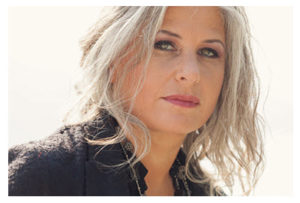Someone referred to me as bitter recently – an offhand remark I found startling, though not entirely surprising. It is a damning term in our society (as are others), particularly when dropped as a sort of hit-and-run label.
 While I understand the prevalence of comments of this type – I think of bitter as one of several terms I consider “slap words” – slurs are used as weapons, dismissive of arguments that deserve examination, and defensive in nature.
While I understand the prevalence of comments of this type – I think of bitter as one of several terms I consider “slap words” – slurs are used as weapons, dismissive of arguments that deserve examination, and defensive in nature.
Yet I am curious to explore the meaning of the word in more detail. I am intrigued by its associations and usage. I am determined to thoughtfully consider the extent to which the observation may be justified.
When we’re disappointed with an outcome, are we necessarily bitter? When we feel we’ve been treated unfairly and the consequences are extreme, is that when bitterness sets in?
Is bitterness a sort of curdling of disappointment that is long-lasting and potentially paralyzing? Is it a term that is more often used with women, and if that’s the case, why?
Why are some people perceived as bitter and others, simply expressing disappointment or disillusionment? Is there an element of how we respond to feelings of resentment or discouragement, rather than the reasons why or the expression of the feelings themselves?
When Bitterness Sets In
Bitterness is a term we associate with particular losses – the woman who is bitter after she puts her husband through school, raises the children, only to be left for someone 20 years younger as she finds she’s no longer “marketable;” or the man who pours all his energy into his career, only to be laid off at 55 and left facing an extended period of unemployment.
And yes, I’ve just used two extremely gender-biased examples: woman and relationship, man and career. Can we agree that in contemporary society, we continue to judge a man’s success by his career or income, and a woman’s success – by relationships? This may be changing (and I’m glad to see it), and this isn’t to say that a woman doesn’t feel tremendous failure when unemployed, or a man, when a significant relationship ends.
As for seeking more clarity on the term “bitter,” I find this definition from The Free Dictionary:
Resulting from or expressive of severe grief, anguish, or disappointment; marked by resentment or cynicism.
Incidentally, the example the dictionary uses in the first part of the definition is “crying bitter tears,” whereas the second part surely fits the scenario of the man who feels betrayed by his employer who lays him off.
I will add that other definitions include anger along with resentment, as in “anger and resentment for something real or imagined,” which is part of a Wiki definition. This provides another dimension to this wickedly charged word – the possibility of an imagined wrong – and that sets my teeth on edge as it is precisely the sort of distortion that places blame, exacerbates the dismissive quality of the word, and renders it an especially judgmental label.
The Roots of Bitterness
While the above definition offers nothing in terms of time tables – my premise that bitterness may be disappointment that persists, sours, and sets in over time – it’s important to acknowledge that the origins are usually extreme. Note that the definition indicates severe grief and anguish.
Shouldn’t we consider that it takes root in pain of a sustained nature?
As we seem predisposed (or conditioned) to associate bitter women with relationship fallout, can we again remember that “severe grief” and anguish are involved? That they aren’t gender-specific? Might we consider that emotional suffering, if prolonged and coupled with other troubles – financial, for example – could cause deep-seated resentment and anger?
 If it remains more common for men to associate self-esteem with their ability to provide and earn money, then is bitterness after being let go by an employer really so difficult to understand?
If it remains more common for men to associate self-esteem with their ability to provide and earn money, then is bitterness after being let go by an employer really so difficult to understand?
The Bitter Ex-Wife
Living with someone whose resentment is pervasive can be extremely unpleasant, whatever the original cause. My mother was a bitter woman during her marriage; as a child I had little idea of why she often seemed angry (and her anger was misplaced). By the time I was a teenager, it was clear that she turned her resentment both inward and outward; she had an acid tongue at times, her face and tone frequently expressed disapproval if not disdain; her negative responses were more often directed at women.
She was bitter about her marriage and in general, her life, which isn’t to say that she didn’t achieve significant accomplishments or have moments of pleasure that she shared with others.
Yet she was just as bitter – if not more – after her divorce. I couldn’t have understood why at the time, though I was nearing 30 when she and my father split. Only after my own divorce could I comprehend the ways in which one sort of resentment may have morphed into another. My father refashioned himself a life with someone he loved, and quickly; my mother’s days were a very different story.
The Psychology of Bitterness
 The Atlantic took on the issue of bitterness in a 2011 article, “The Psychology of Bitterness: 10 Essential Lessons.” Although focused on bitterness that arises out of aging and depression, we can glean clarity in some of the lessons that may have nothing whatsoever to do with either aging or depression.
The Atlantic took on the issue of bitterness in a 2011 article, “The Psychology of Bitterness: 10 Essential Lessons.” Although focused on bitterness that arises out of aging and depression, we can glean clarity in some of the lessons that may have nothing whatsoever to do with either aging or depression.
Providing context for bitterness, the article offers this:
Bitterness follows unwanted experiences—failures, disappointment, setbacks—that are perceived to be beyond one’s control.
Bingo. Beyond one’s control. The perception of setbacks that are beyond one’s control.
So the woman who is blindsided by a husband who leaves her for the younger model may feel that combating her age is something she’s unable to control, and she is powerless to fight. The individual – man or woman – who feels unfairly pushed out of his or her career based on age, politics, or even a dreadful economy, may again feel as if the situation is beyond control.
The ex-spouse who doesn’t anticipate years of scrapping for child support, unable to afford legal assistance to fight back, certainly qualifies for an “unwanted experience that is perceived to be beyond one’s control” – and more so – is beyond one’s control.
The Bitter Pill
From my vantage point, psychologically speaking, it is the powerlessness that is devastating. And I say that, looking back and thinking through the years that my mother increasingly sank into her negativity and yes – anger and resentment.
 It is the powerlessness at play, despite repeated efforts to change the rules of the game, when I look back at my own years following divorce attempting to redress certain situations and finding myself beaten (and increasingly diminished) as a result.
It is the powerlessness at play, despite repeated efforts to change the rules of the game, when I look back at my own years following divorce attempting to redress certain situations and finding myself beaten (and increasingly diminished) as a result.
The Atlantic article also notes distinctions between bitterness and regret:
Bitterness occurs when one believes, rightly or wrongly, that other people could have prevented the undesired outcome. Regret involves blaming oneself.
Many of us, women in particular, blame ourselves for “not seeing” what may have been right in front of our faces, though I am certainly not saying that this is purely the domain of the female sex. But we are socialized to accept more, to make do, to “settle” – for lack of a better term. And when problems occur in relationships, it is very common for us to blame ourselves rather than viewing situations in more holistic fashion. And this is worsened when others point fingers and begin to blame us as well.
Getting Beyond Bitterness
Perhaps it takes a win, or a series of wins, to move through bitterness.
Perhaps it takes a determination not to allow ourselves to dwell perpetually in any negative emotion.
Perhaps bitterness fades – for some people more than others – as a function of their support systems, as a function of time, or a matter of temperament.
Perhaps for some, there is no getting beyond bitterness, at least not as pertains to specific incidents and the emotions they trigger.
To some degree, exploration of what is real (and not imagined) has allowed me to view my feelings of anger and powerlessness as valid. When we give ourselves the recognition of “severe grief and anguish,” the legitimacy of reasons for disappointment and even fury, it becomes easier to note legitimate emotion associated with legitimate setbacks – that are indeed beyond our control.
Then, we may find it easier not to drag the dismal quality of these feelings into everything we do, but to name them as we see them and get on where we can, as positively as we can – working toward more of those rejuvenating victories.
How and Why NOT to be Bitter
I see the way my mother allowed anger and resentment to pervade nearly everything in her life; it was almost impossible to be around her. She resented any woman – even her own daughter – who knew a little happiness.
 I like to think that with time, I was able to restrict, constrain and to some degree compartmentalize my own bitterness. I also turned to what was within my control – the way I was raising my children, the quality of new friendships, for that matter, each month’s financial survival – and I was able to recognize my successes.
I like to think that with time, I was able to restrict, constrain and to some degree compartmentalize my own bitterness. I also turned to what was within my control – the way I was raising my children, the quality of new friendships, for that matter, each month’s financial survival – and I was able to recognize my successes.
As I don’t measure success by dollar signs but I do measure it by quality, surely this change in focus enabled me to enjoy offsetting positive emotions, to appreciate my “wins” (including a good relationship), and to fight for control where I could – and to hang onto it. Still, this doesn’t change the very real issues of financial survival in the wake of a contentious divorce.
I am also fully aware that living a sustained period of negativity is patently unhealthy; a certain amount of righteous indignation fuels the good fight, but experiencing constant animosity, anxiety, or stress affects our sleep, our eating, our hormones, and our immune systems. I strive to live a healthy life, and that includes confronting what hurts when I must and working to let go of what I cannot control, so I do not live my life in shadow.
The “Bitterness” Label: Dismissive
And so I return to my opening questions. The context in which the “bitter” label was used is one I’ve encountered before. As usual, it was intended to deflect debate rather than engage in it. We also have a tendency in this culture to attach emotionally-charged labels to women, and it is women who often are the most judgmental of others of their sex.
Yet the topic was divorce, and I acknowledge that I will likely always retain some bitterness in that regard – anguish, anger, and disappointment – in our institutions.
However, to label someone as bitter without examining the specifics is to dismiss discussion of underlying issues. It is also intended to diminish the speaker, which resolves nothing and teaches nothing.
While I recognize aspects of prolonged resentment in this particular corner of my life given ripple effects that have indeed been beyond my control, I am not bitter about life in general. I have regrets (as do we all), a pragmatic approach to my constraints, a clear view to my opportunities, and the capacity to see the richness of quality relationships and accomplishments that are part of the life I have recreated. And none of us create or recreate our lives in a vacuum – we need a little bit of help from our friends, and the kindness of strangers.
Are You Bitter?
If I have regrets that make me sad, I also retain their lessons to guide me. If I experience moments of bitterness, I recognize triggers from childhood and likewise, post-divorce life. And I imagine we all feel the impacts of scenarios that spark negative emotions from time to time. But we wouldn’t be human if this didn’t occur occasionally.
Timeframe matters in this discussion. Carrying anger for a year or two or even five, compartmentalized, is one thing. Carrying indiscriminate resentment for one’s life seems to me to be a terrible waste.
Last, I believe that well-being doesn’t preclude the honest expression of what hurts, what damages, and what is patently unfair. To live in denial may prove useful on a temporary basis, but in my opinion, it accomplishes nothing in the long-run.
It is only when the negativity – legitimate or otherwise – becomes who we are, pushing away opportunities not to mention those we love, that bitterness prevents us from living a good and reasonable existence. I’m thankful in saying that doesn’t describe me. Does it – or has it – ever described you?
You May Also Enjoy
I decided a long time ago that I was not going to give ANYONE permission to steal my joy. Life is just too short. I also know too many people who have poor health and I completely believe bitterness to be the root of it. I watched bitterness destroy my mother…she never enjoyed life. I decided it would never be the case with me.
Wise words, Pam. I think bitterness ultimately destroyed my mother as well. When you allow it to own your life, you do indeed throw away your joy.
First of all I would like to say that the commenter did not understand the word “bitter.”
You have described it succinctly for me. Bitterness is caused by something beyond one’s control.
And, I believe most of us have suffered bitterness for this reason. Most of it because of family situations, and the workplace, as you described.
For me, the bitterness I have always felt stemmed from my parents, mostly my mother, being totally uninvolved in my life. As time has passed I still feel this way, but have come to understand very clearly that they absolutely had no idea what they were doing. They had 3 children, but made no provision for any of us to go forward and succeed in this world. Therefore, we were handicapped and imprisoned by their lifestyle. We have all done OK, but this scarred my life for decades, long after they were deceased. It is only with knowledge that we overcome these huge personality deficits, isn’t it?
I’m no longer bitter. I am my own person and in charge of my own destiny, finally. And, I am happy, something that eluded me forever, always straining to become better, always trying so hard to be the best. Today I am who I am and it feels good.
Great post, D. I love how you delve deeply into your subject matter.
xx’s
The two thoughts that came to mind is the tremendous wall a bitter person will build for him/herself while at the same time using the bitterness to control those close to them or in need of them. It is a vicious cycle indeed.
Hi D.A., I completely agree with your summation regarding the difference between being impacted by negative experiences vs. the negative experience coming to define us. To me this is about shame, which is when we feel that it is not our actions or choices or experiences or setbacks that were less than optimal but rather that we ourselves are inadequate.
To be told that we are bitter is the opposite of being told that we are sweet; in one case we are the bitter pill no one wants to swallow whereas being seen as sweet evokes a love that could eat us up.
Perhaps being perceived as bitter reflects culture biases as you outline them, particularly around aging for women and career for men, but I think it is primarily an ageist trope. Who refers to “bitter children?” While “bitter” and “old man” go all too easily in the socially conditioned mind of our youth-obsessed and age-phobic culture. Worse yet is if we perceive ourselves as bitter, as this reinforces impossibility to heal, unwantedness, rejection, dejection… which naturally would spiral down into more and more entrenched negative states (and the calcified persona as “bitter”).
My hunch is that early experiences of disrupted attachment, basic insecurity, along with constitutional tendencies toward sensitivity and introversion may place people at greater risk of ending up “bitter,” due to discouragement and decreased flexibility and resiliency. To those fortunate enough not to be bitter it behooves them to have compassion rather than judgment for those who may appear bitter—for most certainly they are suffering and need love and understanding rather than labels.
The alchemists were wont to say that the bitterness of tears leads to the salt of wisdom. Thus going with culinary metaphors, I would offer a spin on bitter—Amarone, an excellent Italian wine means “bitter,” and it is prized for its sophisticated taste; rappini is fantastic, with garlic and olive oil—a savory bitterness I adore, while a Campari and soda in the summer may be a taste well worth acquiring… so, what if life’s most authentic flavor is bittersweet?
In my life I’ve not been told that I’m bitter (but give me time), yet I have been told that I am too nice, and as a male that’s a pernicious insult (to which I might challenge the hurler of such backhanded bullshit with the notion that perhaps they are simply not nice enough). Just as a spoonful of sugar helps the medicine go down, perhaps a little dose of bitter stops the sugar from being cloying or worse yet saccharine.
I love the Count of Monte Christo who drinks a bit of arsenic every day so that later, when enemies try to poison him, he is immune to such bitter attack. He has been much wronged, and the revenge he exacts is not bitter but rather it is sweet, it is justice.
Privilege of Parenting you struck a chord that resonates with me:
“In my life I’ve not been told that I’m bitter (but give me time), yet I have been told that I am too nice, and as a male that’s a pernicious insult (to which I might challenge the hurler of such backhanded bullshit with the notion that perhaps they are simply not nice enough). Just as a spoonful of sugar helps the medicine go down, perhaps a little dose of bitter stops the sugar from being cloying or worse yet saccharine.”
Wow. Bang on. You are much more a gentleman than I when you state perhaps that the other is not nice enough, whereas I was thinking D…Bag (Wolfie can we say that?). I have also been told I care too much. Really? Can you care too much? You can not define boundaries well enough, but can you really care too much?
This statement was usually made in conjunction with my professional success. I have made many “Jerry MacGuire” moments where I have a connection with the people I help and who hire me. That said since my personal separation, divorce and fallout I have also been called cold, calculating, clinical, effective and angry. In essence I help the people and make a connection with those who hire me, but otherwise I am a mini Sun Tzu otherwise professionally. Am I bitter? Maybe in this narrow perspective. Or maybe I now realize where to allocate my energy and empathy instead of caring too much about all, I am now more selective.
This could easily expand into a book! To focus on the question: have I been bitter? Oh my yes yes and yes. Part of the reason I emigrated from the US was that there were no jobs, particularly in education, which is where I pointed myself and thought for sure I could find *something*. Well, there was / is nothing. The bitterness really started to kick in when colleagues (with full time jobs) would sit around complaining violently about their jobs and their students. There I was, ready to GO! Eager. And according to review, pretty good at it. And there they were, complaining, filling up a teaching job while I had nothing. Nothing. I could only describe myself as bitter, and I think it fits neatly into the description you develop here.
I have since let it go. I have reframed myself here, in this new world. And I see what I do now (writing) as a form of teaching — as a form of conversation at least, with an engaged audience. It took a while to get through the stages of grief over the death of my dream. It took looking around at the things closest to me — relationships, resources, all that I still could do day to day — and I let go of the rancor. I’m much better now, I think, and I feel a brighter future for it.
One thing I thought while reading this: bitter as a taste has experienced a blissful resurgence in microbrew beer. The bitterer the better, it seems. What used to be a fault in the product is now often seen as a virtue. The description “bitter” has been reclaimed in that context. Can this happen in other contexts as well? As an optimist, I say, yes. And as I see it, the sorts of reflections you’ve got here push us in that direction. And that’s no bitter pill.
I continue to struggle with bitterness because I trusted my husband to follow our life plan as we each did our parts to contribute jointly- he focused totally on building his career to increase our household income and I was responsible for raising our 3 kids.
However, when he abruptly changed his mind in his 40s and bailed on me and the kids, I found out just how much care-giving is hugely devalued and even ridiculed in the job market and in our legal system.
Suddenly I had to compete in the recession with loads of people with advanced degrees and many years of job experience. There is no way to just GET CAUGHT UP in one or two years!
The mutual decisions and agreements we made 20 yrs ago at the beginning our of marriage have significantly impacted me even this year as I am now 6 yrs past when we signed the divorce decree.
I agree that “bitter” is a word that is loaded, dismissive, gender specific for most of the times it is used and unkind. I think most people have had this state of mind after a serious or traumatic event, including myself.
I think there is a societal “get over it and move on mentally” in society that is both ignorant and actually not healthy. Traumatic events need to be digested, understood, then a coming to terms and healing process ensue. Life is not “Happy Happy Thoughts” (re the movie Demolition Man) and nor should it be something to slog through. If the “bitterness” continues and one basks in it, it then becomes an issue for that person and people around them. I think people need to realize that this state of mind is a process and not a place to put down roots. It is part of the healing process until it lingers to the point it is damaging.
The following are two of my favorite thoughts on the subject:
Holding on to anger is like grasping a hot coal with the intent of throwing it at someone else; you are the one who gets burned.
Buddha
“Resentment is like taking poison and hoping the other person dies.”
St. Augustine
Finally for those that find this difficult and perhaps impossible, consider this wise thought:
The stupid neither forgive nor forget; the naïve forgive and forget; the wise forgive but do not forget.” ~ Thomas Szasz
I was researching “bitter” today and look what came up! Both the post and ensuing discussion are very helpful as I seek to understand an old friend who has been unable to move on and successfully remake her life 20 years after a bad divorce and is now facing another bad break-up. I have to say that the quote Curtis provides from St. Augustine really resonates in terms of this person. I feel so sorry for her and yet I’m angry, too. So much time and potential have been wasted.
How wonderful that you’re seeking to better understand your friend, Judith. The termination of a marriage is so painful and complex. I hope you will continue to be there for her, and that her path to putting the pieces together again will not be as difficult as the first time.
Brilliant piece on bitterness. I loved it. And this lesson is not only for women. I still struggle with childhood abuse and molestation trauma from my youth, and at age 49 found the most awesome therapist. I have come to accept what Robert Brandt says, “Life is easier when you accept the apology you never got.” Healing is a choice, and the most frightening one I have ever made.